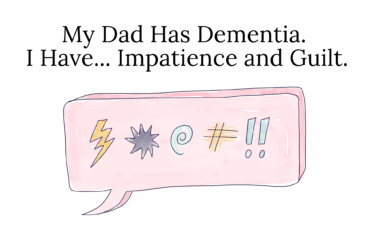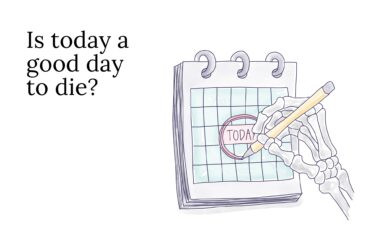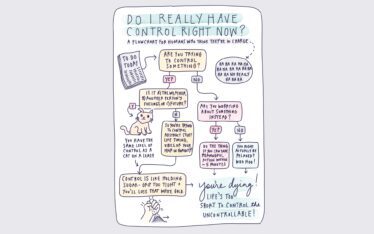Look inside before you look outside.
We’re changing jobs every 4.2 years, us fickle and disengaged worker-bees. Harvard Business Review says that people are most likely to leave a job around their one-year work anniversary because we apparently all believe that the grass is greener, even in concrete jungles.
Are we obsessed with the idea of greener grass on the other side of the workplace fence, when we might be better served to obsess over working on ourselves first? And is it our perspective that makes the grass look greener (like a mirage in the desert of job desperation), or is it really and truly greener over there, with a better parking space to boot?
Believing that the grass is always greener signals a problem. If you consistently believe that what you have right now is never enough — that it’s infinitely better elsewhere, and that your life will only truly begin when you hop the fence — it’s easy and tempting to run away from a crappy job.
When the grass is greener mentality starts to seep in, and/or you’ve hopped around jobs more times than your resume would like to admit, try this…
HANDY THREE-STEP “SHOULD I CHANGE MY JOB” APPROACH:
Step 1: Wait and have a drink.
Don’t fantasize for more than three minutes about the job you saw on CareerBuilder that you’re certain is perfect. It’s a classic “grass is greener” symptom — the over-glorification of any role other than the one you’re in, including the jobs that involve radioactive waste removal. Don’t prematurely hop the fence.
Step 2: Look in the mirror.
Where do you need to do things differently to make your job situation better? What do you own about the less-than-ideal situation? How might a fly on the wall see how your behavior has contributed to the pickle you’re in?
If your coworkers are cliquey and it matters to you to belong, how might you work with them more effectively, and how might you approach them to be included? Gillian (not her real name), a client in her first job, took a hard look in the mirror and saw that her reserved demeanor (an overcompensation for her lack of confidence in her job) made her coworkers see her as unapproachable. (The earbuds in her head all day also didn’t help the socialization process.) After building some confidence, participating in break-room banter, and taking an active role in starting group conversations, Gillian forged new friendships and began to view her job in a completely different light.
If you’re feeling overlooked for a key role, looking in the mirror might mean getting candid feedback about areas of development from your boss, others you trust, and even the person who got the job you wanted. It can also mean mapping out goals and specific steps (and then looping in your boss) and getting coaching on the areas where you need to grow so you’re undeniably promotion-ready for the next opportunity.
Transitioning your locus of control (the belief that the outcomes of your actions are contingent on what you do) from an external place to an internal one is tremendously empowering while sometimes feeling a bit troubling. By taking an active role in owning your development and career path, your perspective on your company can transition from working at a place that sucks because they don’t appreciate your immense value to viewing your organization as one with future opportunities for someone like you, with lots of potential.
The research that smart people at Wharton did on this topic found that employees benefit most when they “look in the mirror” and take different roles within their current company (bigger increases in rank and responsibility initially, and then pay bumps in the long-run), rather than making a move to another company (where pay raises were imminent but responsibility increases were not guaranteed). The researchers advise us to climb a rung or two up the ladder of an organization where there is room to grow, and then hop the proverbial fence.
Step 3: Assess if it’s you or them.
Working on yourself can do amazing things, like transforming how you do the job you do and what your attitude is like when you sit at your desk each morning — but sometimes your company is truly just a living nightmare, even if you’ve worked on you all day long.
Colleagues that still don’t let you into their inner circle after you’ve consciously tried several attempts to break in might mean that it’s them, not you. Not getting promoted even after exceeding your goals and getting great reviews might mean it’s them, not you.
Sometimes you need help discerning what’s them vs. you, but most of the time, your gut is right. If the things that matter to you are still an issue — even after you’ve made an honest attempt to be your best self in the midst of it all — it might be time to heed the grass is always greener refrain in your head. You can move forward with your search knowing you’ve done what’s possible in your end.
You’re not running from your job; you’re running to a better place to spend at least a third of your week.
Sometimes the grass really is greener, though.
There are times when you know that’s true, but you’re stuck and scared. You don’t want to do all of the things that will rock your comfort-zone-core, like putting a resume together, creating alibis for when you’re out interviewing (not to mention figuring out what to wear), getting your hopes up, handling rejection, figuring out what you even want in the first place… you name it.
So, then what? Staying in a lack-luster job is not the answer. “Everything you want is on the other side of fear” (such a great quote by Jack Canfield).







